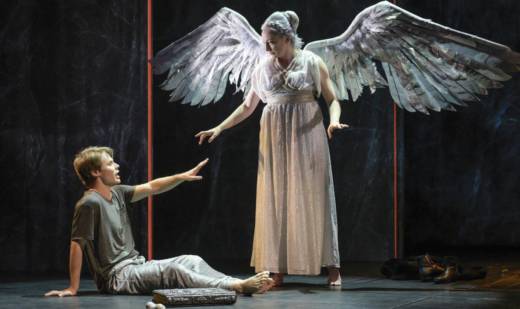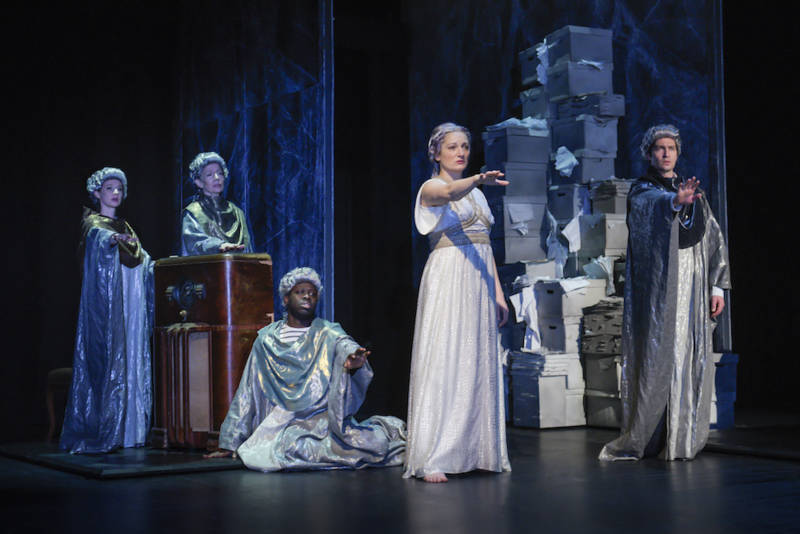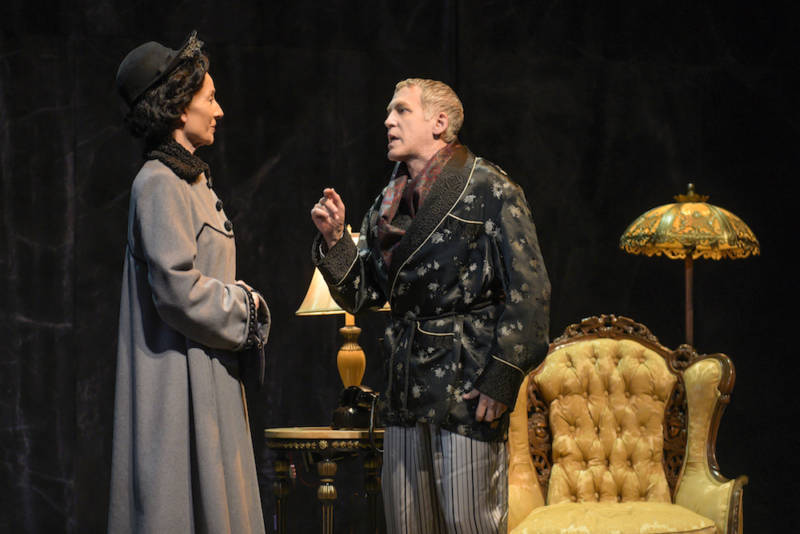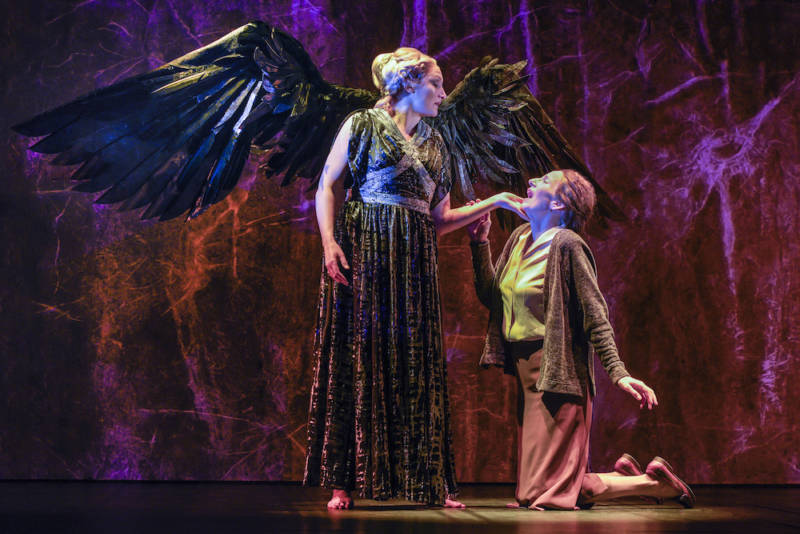Inspired partly by the success of Larry Kramer’s The Normal Heart, a play steeped in the politics and the personal of the ongoing AIDS crisis, and partly by a dream playwright Tony Kushner once had of a dancer he knew, lying on his sickbed while an angel crashed through his ceiling, Angels in America has a backstory as sprawling and epic as the play itself.
Actually two plays in repertory — Millenium Approaches and Perestroika, each running around three and a half hours — Angels in America tackles, among other themes, AIDS, progress vs. providence, the fickle twists of love, loyalty, and abandonment, and the spark of the divine that might be found in even the most venal of hosts. For theatergoers, it is high on most bucket lists of “must sees,” and a long-anticipated revival currently at Berkeley Rep, under the direction of longtime Tony Kushner champion Tony Taccone, does not disappoint.
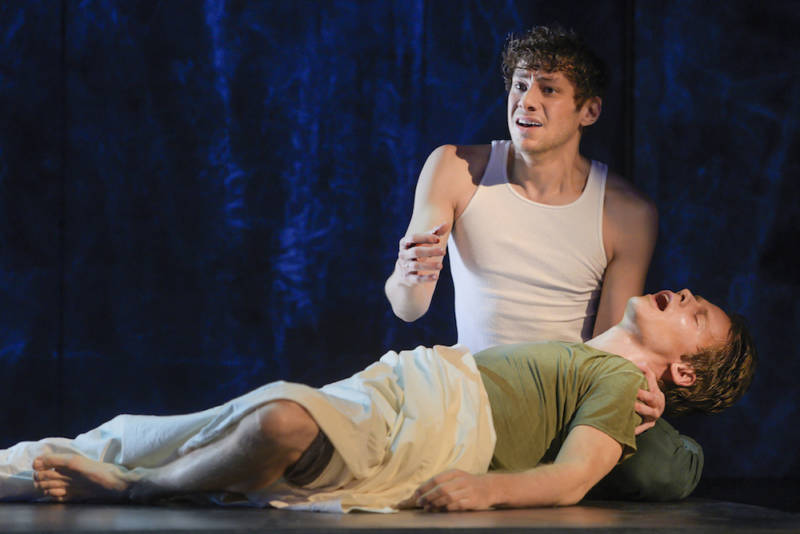
In fact, Kushner’s script is eerily prescient in form as well as content, as scene after scene unfurls in rapid succession, almost as a mini-series, which makes the seven-hour marathon (most Saturdays and assorted other dates, through July 22) feel like that most modern of indulgences, the binge-watch.
In terms of dialogue, outside of the fact that Ronald Reagan is frequently name-checked, many of the conversations feel like the ones you’ll overhear today in urban coffee shops across the United States, from real talk about race relations and white privilege to support for Palestinians to a gay man’s questioning whether or not their “girl talk” is an act of misogyny. It speaks strongly to Kushner’s ability to read between the lines of American vernacular history in order to have created this instantly recognizable and resonant world that stands the test of time, angels and all.
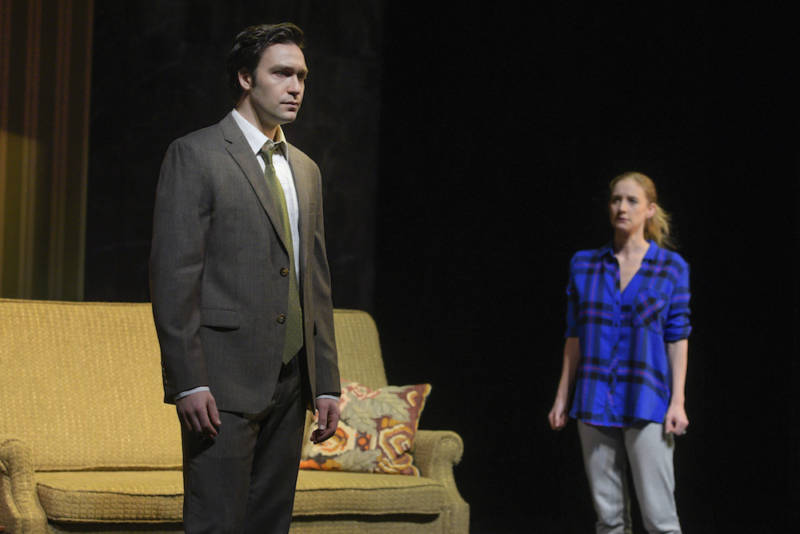
True, it takes the Angel (double-cast with Francesca Faridany and Lisa Ramirez) up until the final moments of Millenium Approaches to crash through the ceiling of AIDS-stricken Prior Walter (Randy Harrison), a former drag performer and the descendant of a line of prior Prior Walters stretching back to the Bayeux Tapestry. But by that point, references to the divine have already abounded: high-strung housewife Harper (Bethany Jillard) observes that the ozone layer is like a “spherical net” of “guardian angels”; Prior’s lover Louis (Benjamin T. Ismail) asserts that justice is like God, “a confusing vastness”; and closeted Mormon Joe (Danny Binstock) reveals that he frequently fantasizes about wrestling an angel, “a beautiful man,” a la Jacob in a gay wilderness.
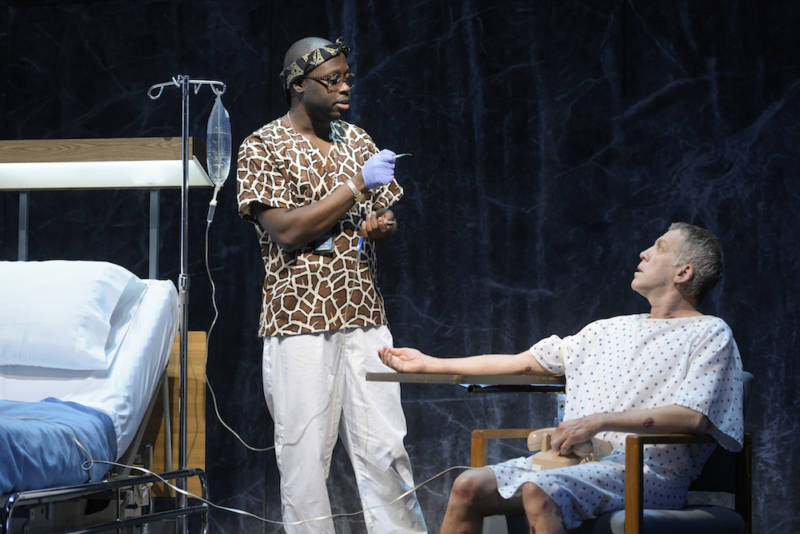
More than a flighty metaphor, the Angel (portrayed with sonorous gravity by Francesca Faridany when I saw it) arrives as a representative from a politburo of heavenly hosts, charging Prior with the task of encouraging humanity to put the brakes on, so to speak, and slow their forward motion.
